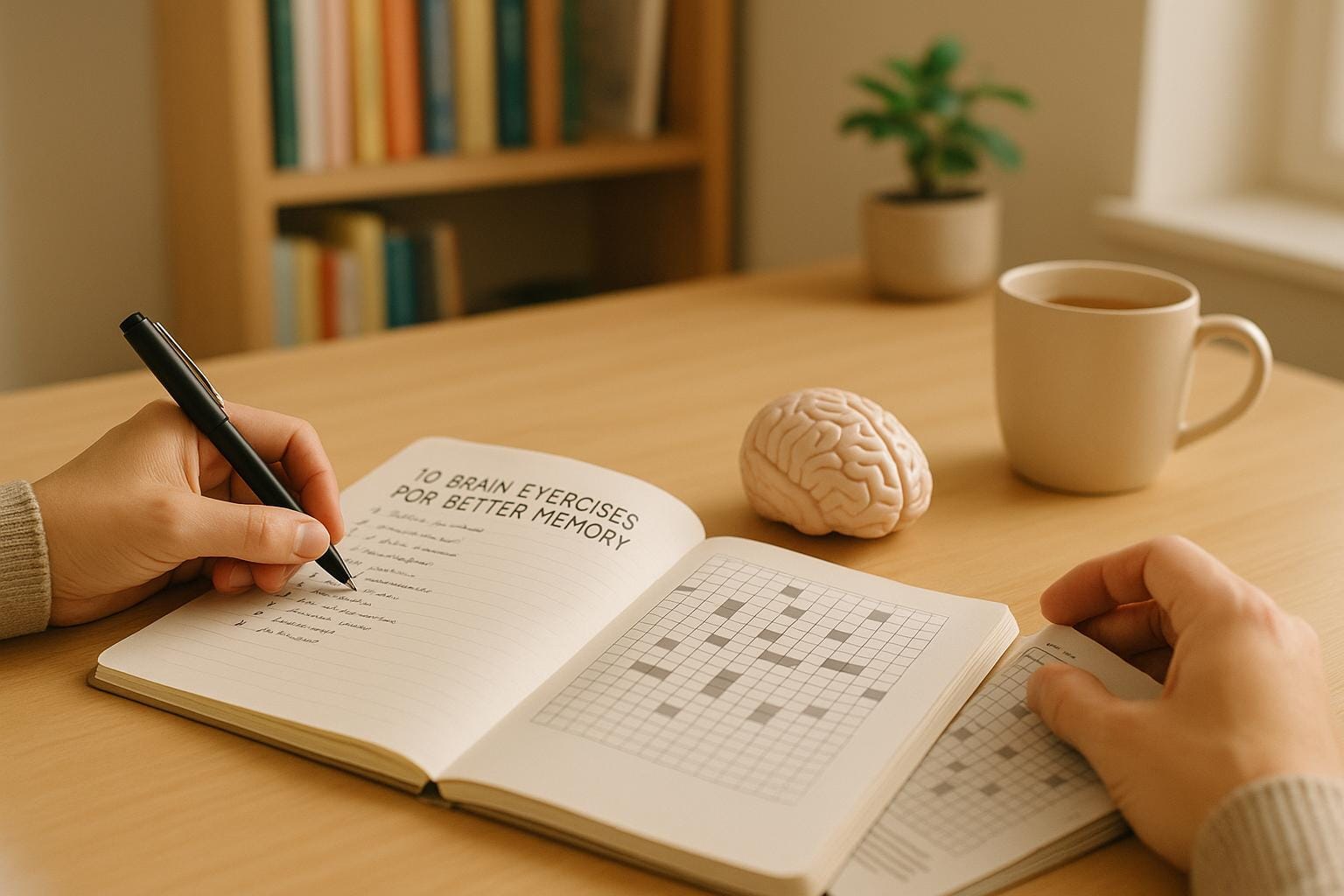Your body’s internal clock doesn’t just regulate sleep - it also affects how you process food. Eating at the right times can improve energy, metabolism, and overall health. Here’s what you need to know:
- Morning meals are better for blood sugar control. Your body handles glucose more effectively earlier in the day due to higher insulin sensitivity.
- Late-night eating can disrupt your metabolism. It’s linked to weight gain, higher blood sugar, and increased risks of chronic diseases like diabetes.
- Meal timing influences hormones. Eating earlier helps balance hunger and fullness hormones, making it easier to manage appetite.
- Consistency matters. Regular meal times help keep your body’s clocks in sync, improving digestion and energy use.
For best results, eat during daylight hours, start with a protein-rich breakfast, and finish meals 2–4 hours before bed. Aligning your eating schedule with your body’s natural rhythms can make a big difference in your long-term health.
One Bite At a Time: Chrononutrition and the Science of Eating by the Clock | Cedars-Sinai

How Your Body Clock Controls Nutrient Absorption
Your body has an internal schedule that determines how it processes food, ensuring nutrients are absorbed efficiently. Interestingly, eating the same meal at different times - say, breakfast versus dinner - can trigger different metabolic reactions. Here’s why timing matters.
Your Body's Internal Clocks
Your brain may house the master clock, but your digestive system operates on its own schedule, with organs like the liver, pancreas, and intestines running on "peripheral clocks." These clocks sync with the brain’s central rhythm through light signals and feeding patterns.
For instance, about 10% of liver genes follow a circadian rhythm, managing glucose levels, fat metabolism, and bile acid production. The pancreas relies on its clock to regulate insulin release, while the gut clock influences how much glucose your body absorbs during digestion. The liver clock also manages enzymes like SIRT1, which play a key role in transitioning between fasting and feeding states.
Even your gut bacteria aren’t exempt - up to 20% of intestinal microbes fluctuate throughout the day, aligning with your eating habits. This synchronized timing across systems explains how meal timing impacts your metabolism.
Timing’s Impact on Nutrient Processing
These internal rhythms reveal why the timing of your meals affects how your body processes nutrients. Eating the same meal at different times can lead to varying metabolic outcomes. For example, your body is better at managing blood sugar in the morning due to higher insulin sensitivity during early hours.
One study spanning 20 weeks found that eating later in the day led to less weight loss, even when calorie intake and energy use were the same. Another trial showed that a "big breakfast" diet - 700 calories for breakfast, 500 for lunch, and just 200 for dinner - resulted in more weight loss, a smaller waist circumference, better fasting glucose and insulin levels, and lower ghrelin (hunger hormone) levels.
"An evolutionary advantage of the circadian clock may be that it enhances energetic efficiency through temporal separation of anabolic and catabolic reactions (such as gluconeogenesis and glycolysis)." - Biliana Marcheva et al.
Even your intestinal cells work on a rhythm. Transporters that move sugars, ions, and peptides from your gut into your bloodstream follow circadian cycles, meaning your body’s nutrient absorption shifts depending on the time of day.
The liver plays a particularly vital role in maintaining energy balance. Many enzymes involved in breaking down nutrients are expressed in patterns that align with your body’s energy needs. Eating at the wrong times can throw this coordination off, reducing nutrient efficiency and potentially leading to metabolic issues.
This article is for informational purposes only and is not intended as medical advice. Please consult a healthcare professional before starting any new fitness or wellness routine.
Health Benefits of Eating at the Right Times
Your body's internal clocks play a key role in regulating how nutrients are absorbed and used. But did you know that when you eat can be just as important as what you eat? Research shows that meal timing significantly impacts everything from blood sugar levels to hormone regulation, offering benefits that go beyond just weight control.
Better Blood Sugar Control and Metabolism
Your body is naturally better at managing glucose in the morning, making breakfast timing critical for maintaining metabolic health. Studies have shown that eating earlier in the day leads to better blood sugar control and improved insulin sensitivity.
Each hour you delay your first meal can increase glucose levels by about 0.6% and insulin resistance by roughly 3%. For example, someone who eats their first meal at 10:00 AM may have better metabolic markers than someone who waits until noon. One study even found that early eaters had an average glucose level of 91.2 mg/dL, compared to 99.2 mg/dL in late eaters - putting the latter group closer to prediabetic levels.
"In this cross-sectional study, earlier eating start time was associated with more favorable metabolic measures, indicating that meal timing is another important characteristic of dietary patterns that may influence metabolism." - Marriam Ali, Center for Circadian and Sleep Medicine, Northwestern University Feinberg School of Medicine
Glucose tolerance naturally peaks in the morning and declines as the day progresses, regardless of what you eat or how active you are. This is why experts recommend finishing meals 2–4 hours before bedtime to improve glucose control. In fact, research comparing dinner at 6:00 PM versus 9:00 PM found that eating earlier significantly improved blood sugar levels and fat burning overnight.
How Meal Timing Affects Hormones and Hunger
Your hunger and fullness hormones - ghrelin and leptin - also follow a daily rhythm. Ghrelin, produced in the stomach, signals hunger, while leptin, made by fat cells, signals when you're full.
Late eaters often have higher leptin levels in the morning compared to early eaters, which may disrupt the balance of hunger and fullness signals. This imbalance can make it harder to manage appetite and maintain a healthy weight. Over a 19-week period, late eaters lost 1.5 kg less than early eaters, even when both groups followed the same calorie restrictions.
Interestingly, eating high-protein or healthy carbohydrate meals helps reduce ghrelin levels more effectively than high-fat foods. However, in people with obesity, leptin peaks are often delayed by about three hours at night . These hormonal shifts don't just affect hunger - they also influence energy levels and overall wellness.
More Energy and Better Overall Health
Eating in sync with your body's natural rhythms doesn’t just improve metabolic and hormonal health - it can also boost your energy and overall well-being. When your meals align with your internal clock, your body processes nutrients and uses energy more efficiently.
For example, the energy your body uses to digest food - known as diet-induced thermogenesis (DIT) - is 44% lower after evening meals compared to morning ones. Time-restricted eating can help reduce calorie intake by up to 20% without the need to consciously cut portions. One study on overweight and obese individuals found that eating earlier in the day significantly reduced appetite. In a 2025 trial, young adult women who followed an early eating schedule (8:00 AM–2:00 PM) lost more weight and maintained lean muscle mass compared to those who ate later in the day or followed a traditional eating window (8:00 AM–8:00 PM).
"A late eating schedule increases the mean 24-h interstitial glucose concentration in young adult males. This insight will have useful implications in determining meal timings, especially for those with conditions such as diabetes." - The Journal of Nutrition
Stopping food intake 2–4 hours before bedtime allows your body to focus on repair and recovery during sleep rather than digestion. This can lead to better sleep quality, steady energy throughout the day, and sharper cognitive function. For best results, aim to eat during daylight hours - ideally between 8:00 AM and 6:00 PM - when your body is naturally more insulin-sensitive and hormone production is better balanced.
This article is for informational purposes only and is not intended as medical advice. Please consult a healthcare professional before starting any new fitness or wellness routine.
Simple Ways to Time Your Meals with Your Body Clock
If you want to align your eating habits with your body's natural rhythms, the science of nutrient timing offers some practical strategies. Here's how you can make the most of your meals by working with your body's internal clock.
Start Strong with Breakfast and Wrap Up Dinner Early
Your body is naturally ready for food in the morning, making breakfast a key meal for supporting your metabolism. Hormones like ghrelin, which stimulates appetite, peak around 8:00 AM, while adiponectin, which enhances fat burning and insulin sensitivity, reaches its highest levels around 11:00 AM. This makes the morning an ideal time to fuel up.
"We found that the timing of meals changes the proportion of fat the body is burning while sleeping, regardless of fasting." - Carl Johnson, professor of biological sciences, Vanderbilt University
Even if you're not particularly hungry, having a protein-packed breakfast within two hours of waking can set you up for success. Studies suggest that eating a larger, protein-rich breakfast can help maintain a healthy weight. In fact, one study found that participants who ate breakfast burned about 15 grams more fat daily compared to those who ate late-night snacks.
On the flip side, aim to finish dinner before 8:00 PM. Eating late can disrupt your circadian rhythm and prevent your body from activating the metabolic processes that burn stored fat during sleep. Opt for meals high in fiber and low in saturated fat. Wrapping up your meals earlier in the day also extends your fasting period, giving your body more time to metabolize fat.
Once you've mastered breakfast and dinner timing, the next step is to create a consistent eating schedule.
Stick to Regular Meal Times
Keeping a steady meal schedule is another way to support your body's natural rhythms. People with consistent eating habits often report better sleep and lower stress levels - by as much as 14%.
"Eating when your body expects you to eat is an important part of your sleep health - by encouraging healthy sleep patterns." - The National Sleep Foundation
Eating meals at predictable times, from sunrise to sunset, promotes better metabolic health. After breakfast, try eating every three to four hours to maintain stable blood sugar levels. This routine helps synchronize your body's internal clock, supports digestion, and may even reduce the risk of weight gain - even if your total calorie intake doesn’t change .
Starting your day with a consistent breakfast signals your body to wake up and be alert. Similarly, having a light dinner two to three hours before bed helps prepare your body for rest.
Adjust Meal Times to Fit Your Natural Rhythm
Building on consistent meal timing, you can fine-tune your schedule to match your individual chronotype. Whether you're an early riser or a night owl, your natural tendencies - shaped by your genes - can influence the best times for eating, sleeping, and exercising.
Your chronotype may also affect your appetite and activity levels, so it’s worth experimenting with meal timing to find what works best for your lifestyle and health goals. Pay attention to your body's hunger and fullness cues. Planning and preparing meals in advance can help you stay on track and make healthier choices. Focus on lean proteins, vegetables, fruits, and whole grains.
No matter your schedule, starting the day with a nutrient-rich breakfast is essential. Whether you’re up at 6:00 AM or 8:00 AM, breakfast gives you the energy and nutrients you need to kickstart your day.
By making simple changes to when and how you eat, you can improve blood sugar control, balance hormones, and boost your energy levels - all of which are key to long-term health.
This article is for informational purposes only and is not intended as medical advice. Please consult a healthcare professional before starting any new fitness or wellness routine.
Different Meal Timing Methods: What Works Best
When it comes to meal timing, there’s no one-size-fits-all solution. Your schedule, natural body clock, and lifestyle all play a role in finding what works best for you. Below, we break down some popular meal timing strategies to help you decide.
Meal Timing Methods Comparison Chart
| Method | Eating Window | Best For | Key Benefits | Potential Drawbacks |
|---|---|---|---|---|
| Circadian Rhythm Fasting | 8:00 AM – 6:00 PM (10–12 hours) | Early risers with regular schedules | Aligns with natural body rhythms and may improve insulin sensitivity | Can be tough for those with evening commitments |
| 16:8 Time-Restricted Eating | 12:00 PM – 8:00 PM (8 hours) | Those with flexible schedules | May naturally reduce calorie intake by about 20% | Delayed eating start might miss benefits of an early breakfast |
| Early Time-Restricted Eating (eTRE) | 8:00 AM – 2:00 PM (6 hours) | Morning people focused on metabolic health | Linked to better insulin sensitivity, fasting glucose, weight reduction, and gut health | Requires significant routine adjustments |
| Traditional 3-Meal Pattern | Approximately 7:00 AM – 8:00 PM (13+ hours) | Families and those with stable routines | Easy to follow and socially accepted | Late-night snacking can creep in, often contributing up to 45% of daily calories |
This chart highlights the key features of each method, helping you weigh the pros and cons.
Circadian rhythm fasting focuses on eating during the earlier part of the day. Research with 137 firefighters on 24-hour shifts showed that reducing their eating window to 10 hours (from an average of 14.1 hours) over 12 weeks led to better blood sugar control and lower blood pressure for those at higher health risk.
"Circadian rhythm fasting confines meals to the earlier hours of the day, restricting the hours of the day you eat rather than the amount you eat."
Early time-restricted eating (eTRE) narrows the eating window further, limiting meals to the morning and early afternoon. Studies comparing eTRE to midday time-restricted eating found that eTRE was more effective at improving insulin sensitivity, lowering body mass, and boosting gut microbial diversity.
For those needing more flexibility, the 16:8 intermittent fasting method is a popular choice. It allows for a later start to eating, with most people naturally cutting calorie intake by about 20%. However, it may take a couple of weeks to adjust to this schedule.
"Intermittent fasting differs from typical American eating patterns for most Americans, who eat throughout their waking hours." – Mark Mattson, Johns Hopkins Neuroscientist
Your chronotype - whether you're a morning person or a night owl - can also influence which method suits you. Morning types often thrive on earlier eating schedules like circadian rhythm fasting, while night owls may need a later eating window, such as 12:00 PM–8:00 PM. One study of 110 participants found that aligning meal timing with your internal clock was more important than the actual time on the clock.
Night owls, however, face unique hurdles. Their natural rhythms can clash with work or social schedules, creating "nutritional jet lag", which has been linked to negative metabolic effects. A moderate, flexible eating window might be a more sustainable choice for them.
While these methods offer various benefits, it’s important to be mindful of potential downsides. For example, extreme approaches like eating within an 8-hour window or less have been linked to a 91% higher risk of cardiovascular disease mortality, underscoring the need for balance.
"Our bodies are complex, and how they respond to dietary changes is unique to each of us. Intermittent fasting may be the answer for those with insulin resistance, but it may put others with heart disease and other conditions at risk. It's important to weigh your options carefully." – Brandy Sarrette, RDN, LDN, clinical dietician with Baystate Health
To ease into a new schedule, try gradually shifting your last meal earlier by 30 minutes each week until you find a routine that feels sustainable. Consistency is more important than perfection - regular meal timing within your chosen window can make a big difference.
These approaches demonstrate how adjusting meal timing can positively impact health. By aligning your eating habits with your body’s natural rhythms, you can support better metabolic outcomes.
This article is for informational purposes only and is not intended as medical advice. Please consult a healthcare professional before starting any new fitness or wellness routine.
Key Points About Meal Timing and Your Body Clock
The Science of When You Eat
Your body’s internal clock plays a big role in how it absorbs nutrients and manages metabolic health. Research into meal timing shows that your body processes food differently depending on the time of day.
Insulin sensitivity follows a natural rhythm, peaking in the morning and tapering off as the day progresses. This means your body is better equipped to handle carbs and sugars earlier in the day. Eating the same meal at night can lead to a larger blood sugar spike compared to eating it in the morning.
Morning meals also activate higher diet-induced thermogenesis, which means your body burns more calories after breakfast. In contrast, evening meals lead to delayed and larger increases in glucose, insulin, and fatty acids . One study found that the body’s metabolic rate after eating was significantly higher in the morning.
Interestingly, the timing of your meals can even shift your body’s internal clocks. For example, delaying your meals by five hours can push your circadian glucose rhythms back by a similar amount - around 5.69 ± 1.29 hours. This highlights how meal timing can influence your body’s natural cycles.
Eating at irregular times can disrupt the alignment between your central and peripheral clocks, increasing the risk of metabolic issues and weight gain.
These findings show that adjusting when you eat can have a meaningful impact on your long-term metabolic health.
Simple Changes for Long-Term Success
The good news? You don’t need to overhaul your entire lifestyle to benefit from better meal timing. Small, manageable changes can make a big difference.
Start your day with a nutrient-dense breakfast when your insulin sensitivity is at its highest. This aligns with the age-old wisdom:
"Eat like a king in the morning, a prince at noon, and a peasant at dinner."
Finish your meals earlier in the evening, ideally between 5:00–7:00 PM, to avoid late-night calorie intake and minimize metabolic disruption .
Consistency is key. Eating at the same times each day helps reinforce your body’s natural rhythms, creating a cycle that supports better energy management and overall health. Predictable meal schedules are one of the easiest ways to align with your body’s needs.
Shorten your eating window to match your body’s natural rhythms. This doesn’t mean eating less food - it simply means concentrating your meals into a shorter timeframe that works with your internal clock.
Studies show that misalignment between your eating habits and hormonal rhythms can throw off appetite-regulating hormones, increasing the likelihood of overeating and weight gain. By adjusting your meal timing, you’re helping your body work more efficiently.
One particularly interesting finding is that meal timing has a stronger influence on blood sugar control than it does on fat metabolism. This makes when you eat one of the most impactful changes you can make for improving glucose management and supporting long-term metabolic health.
This article is for informational purposes only and is not intended as medical advice. Please consult a healthcare professional before starting any new fitness or wellness routine.
FAQs
How does the timing of meals impact hormones and appetite control?
The timing of your meals has a big impact on how your body manages hormones and hunger, thanks to its connection with your circadian rhythms. Take ghrelin, for instance - this hormone, which signals hunger, naturally peaks in the evening and is at its lowest in the morning. This pattern aligns with your body’s daily cycle, meaning eating earlier in the day can help curb late-night cravings and sync better with your natural rhythm.
Meal timing also plays a role in regulating leptin, the hormone that helps suppress appetite. Disrupted sleep or irregular eating schedules can lower leptin levels while boosting ghrelin, leaving you feeling hungrier and more prone to overeating. By sticking to consistent meal times and focusing on earlier meals, you can help keep your hormones in check, maintain steady energy levels, and better control your appetite.
What happens if you don't align your meal times with your body's natural circadian rhythm?
Eating meals at inconsistent times or straying from your body's natural circadian rhythm can throw your metabolism off balance, potentially impacting your overall health. This disruption has been linked to a higher risk of obesity, type 2 diabetes, heart disease, and unhealthy cholesterol levels. Irregular eating habits can also lead to insulin resistance and hinder your body's ability to process glucose, making it harder to maintain stable blood sugar levels.
But it’s not just your physical health that takes a hit. Eating outside your natural rhythm can also affect your mental health, contributing to mood swings, anxiety, and even depression. When your internal clock is out of sync, it struggles to maintain harmony, which can leave you feeling off-balance. By aligning your meal times with your body’s natural rhythms, you can improve nutrient absorption and support both your physical and mental well-being.
Can changing when you eat really improve weight loss and metabolism, or are other lifestyle changes needed too?
Aligning your meal timing with your body's natural circadian rhythm can play a key role in supporting weight loss and improving metabolic health. This approach helps optimize nutrient absorption and promotes better metabolic function. But for meaningful, long-term results, meal timing should work hand-in-hand with other healthy habits, like staying active, eating a balanced diet, getting enough quality sleep, and managing stress effectively. When combined, these habits create a well-rounded and sustainable path to better health and wellness.












